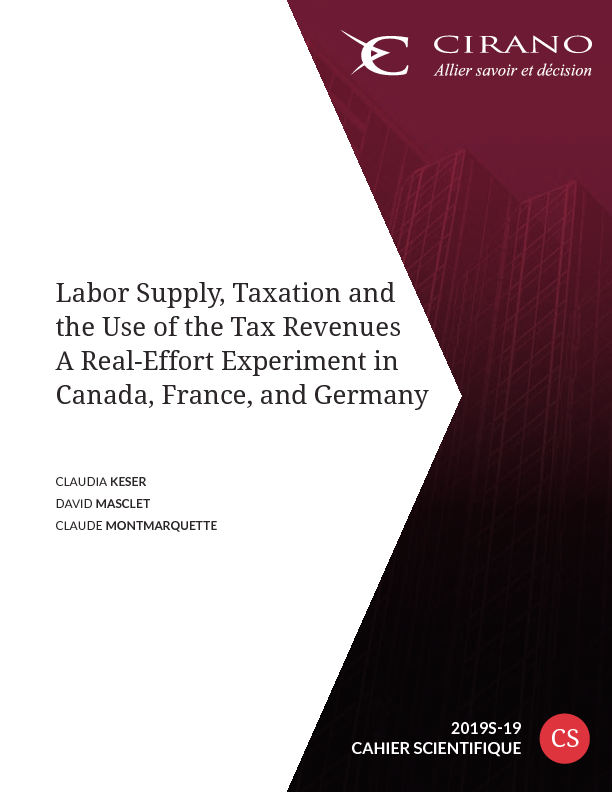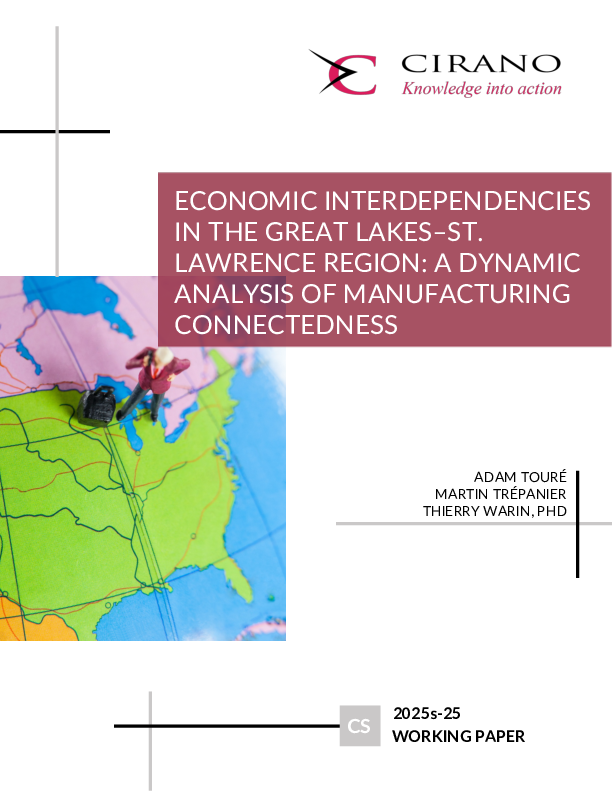Labor Supply, Taxation and the Use of the Tax Revenues - A Real-Effort Experiment in Canada, France, and Germany
Is the labor supply of individuals influenced by their perception of how their income taxes will reflow to them or be wasted in administrative expenditures? We examine this issue experimentally by comparing three different treatments of a real-effort game that vary in the degree of redistribution. At one extreme, the Leviathan scenario, where no tax revenue is redistributed to the taxpayers, is compared to the situation where public expenditures are direct transfer payments. In-between, we investigate a situation where tax revenue is used to finance a public good that provides neither direct nor immediate monetary benefits to the taxpayers. We ran this experiment in three different countries, Canada, France, and Germany, to test whether there may exist any country differences in attitude toward taxation and redistribution. We find that effort is significantly higher in the redistribution treatment than the Leviathan treatment. Tax revenue is the highest in the redistribution treatment, followed by the global public good and the Leviathan treatment. On average, the effort is higher in France than in Canada and Germany.




